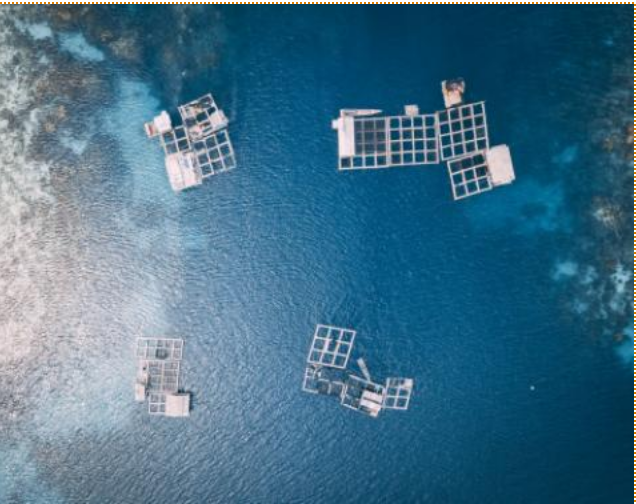
More guidance is being offered to help banks to lend without sustainability risks in the controversial seafood, palm oil, soy and beef sectors in south-east Asia and Latin America.
The new recommendations are put forward by Global Canopy, a UK-based environmental NGO whose main objective is to protect tropical forests.
The advice is intended to support both banks and investors in making responsible decisions and to limit environmental and social damage in the territories served.
Global Canopy, which produced the guidance after joint research with the environmental charity WWF, takes the responsibility argument further by highlighting the commercial gains achievable from managing sustainability-related risks.
To reinforce the optimism Global Canopy points out that at present goods and services derived from the oceans are valued annually at $2.5tn (£1.96tn, €2.17tn), and that south-east Asia is likely to produce a quarter of the world’s seafood by 2030.
It reports: “Growth in seafood production is key to meeting regional food security, and banks can capture that opportunity if they put in place safeguards to ensure the sustainable development of the fisheries industry.”
There was disappointment, however, that, although seafood-specific sustainability principles were followed by eight global banks, including the German Deutsche Bank and Standard Chartered based in London, 24 south-east Asian regional banks inspected in the research had no such policies.
Global Canopy tells them: “Banks can upgrade their policies to include seafood and make the most of the opportunity that sustainable seafood represents now and in the future.”
Turning to South America, the research reveals that only one of the 24 banks covered in Brazil and Paraguay is committed to reduce deforestation by client companies. Of 14 banks in Brazil only four specifically demand that clients prove legal land tenure and compliance with the Brazilian Forest Code, the legislation requiring landowners to maintain 80 per cent of the Amazon forests as reserves.
A more hopeful revelation in the research is that nearly 30 per cent of the south-east Asian banks reviewed have policies regulating loans for companies in the palm oil industry, a sector notorious for wanton forest destruction.
Two of the banks have even introduced financial incentives encouraging palm oil companies to farm sustainably.
The research comes with a stark warning. Environmental degradation and irresponsible fishing constitute a threat to business. Therefore, risks to operations and reputations could hit companies’ ability to repay capital.
Tom Bregman, senior sustainable finance associate at Global Canopy, said: “The banking sector in south-east Asia has a historic opportunity to underwrite food security and reap the multi-trillion-dollar benefits across its lending and investment portfolios.
“But first there is a real need to put in place policies that properly assess the environmental and social risks of those they finance.
“Every year over nine million hectares of tropical forests are cleared to make way for the production of soft commodities such as palm oil, soy, cattle and timber. And more than 30 per cent of the world’s fisheries have been pushed beyond their biological limits.”
Another warning was voiced by Raj Kundra, the WWF’s international finance vice-president: “While there are encouraging signs that regional banks are starting to act in areas such as labor rights or palm oil, there is still a long way to go.
“The majority of banks assessed do not have adequate seafood and soft commodity policies to seize the opportunity of financing the food security of tomorrow.
“That’s why today’s tools and guidance are so important. They help to provide a platform to bridge the capacity gap, enabling banks to develop meaningful policies that help manage supply chain risks and opportunities.”
Support for the Global Canopy research was given by a Californian NGO. The Gordon and Betty Moore Foundation, set up by the co-founder of the technology company Intel and his wife to protect the San Francisco Bay area, provided some of the finance.
Photo: Global Canopy














